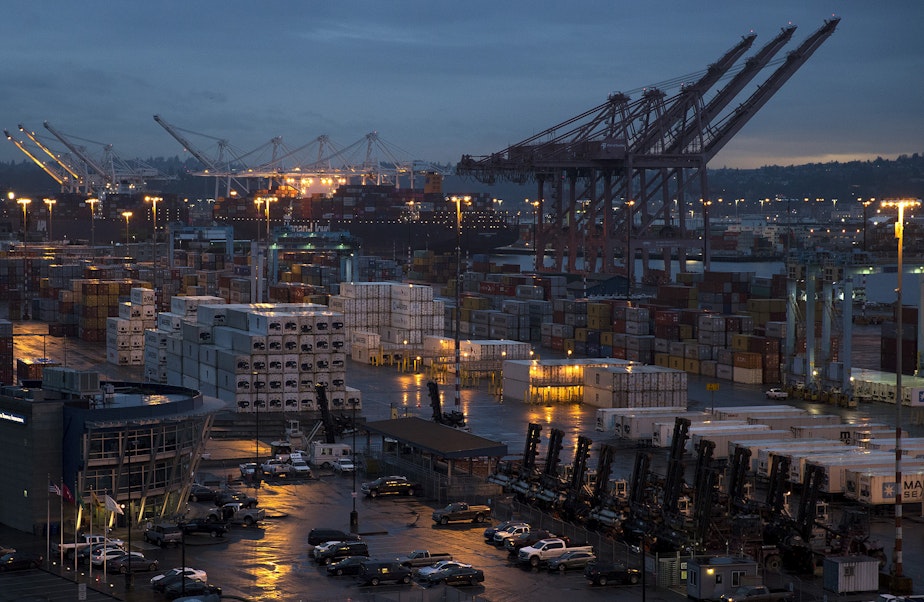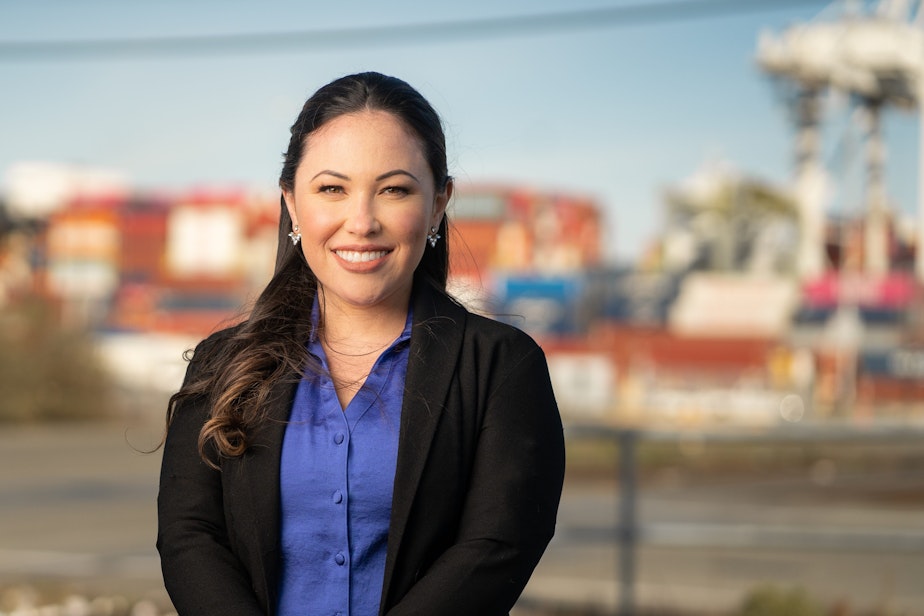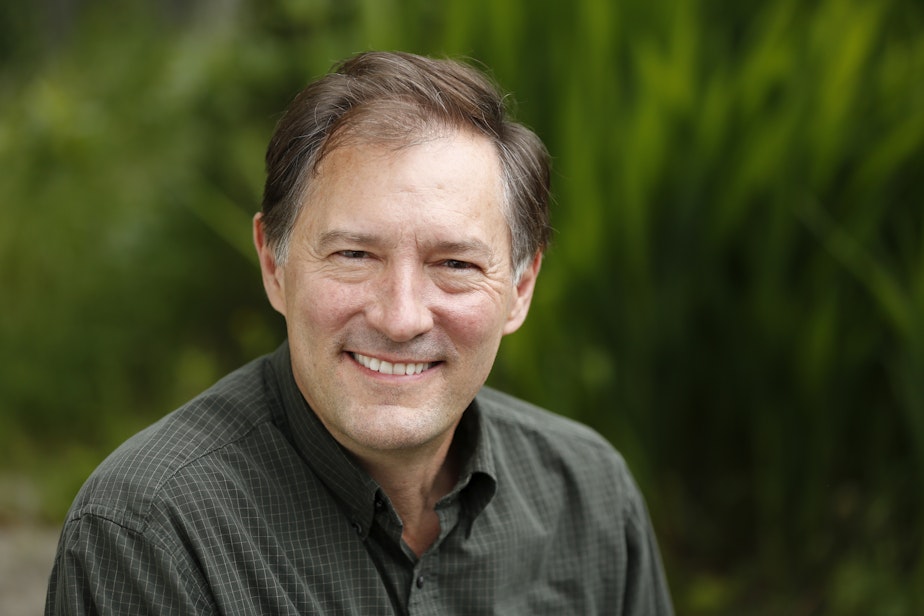A woman of color has never been elected to Seattle Port Commission. That could change this year

Toshiko Grace Hasegawa of Beacon Hill is running for the Port Commission Position 4 seat against incumbent Peter Steinbrueck.
The battle is generational. Both Hasegawa and Steinbrueck come from liberal Seattle families long steeped in politics, but their campaigns represent the varied options of the Port's future.
The Seattle Port Commission oversees a vast transportation empire, which includes Sea-Tac airport and the working waterfront, which includes the fishing, cargo and cruise industries. The Port says it supports around 200,000 jobs that pay out around $7 billion in wages per year.
Hasegawa is currently Executive Director of the state’s Commission on Asian Pacific American Affairs. She’s also a 4th generation Seattleite, and a mixed-race Japanese-American Millennial who lives on Beacon Hill.
“Look at who has historically been a commissioner, it has not historically represented folks from South King County, or airport cities, from communities of color, or immigrants or refugees,” she said.

Hasegawa said she would be laser-focused on greater equity for those working families to “make sure that women and people of color not only have access to these jobs, but also that we’re creating a safe and supportive environment to retain them once they get there."
Overall, her campaign represents a generational challenge to commissioner Peter Steinbrueck who has served since 2017.
Sponsored
You may also remember Peter Steinbrueck as a former three-term Seattle city council member, or that his dad Victor Steinbrueck has a Seattle park named after him because he helped save Pike Place Market from gentrification.
His son Peter said gentrification is still a threat today – to the industrial land the Port controls and to the blue-collar jobs the land supports.
“It is constantly being challenged with rezoning proposals, with proposals for non-industrial uses. Housing, restaurant, retail, commercial, you name it,” he said.
Steinbrueck said maintaining and growing the Port's business is a top priority, and that living wage jobs are key to growing social equity.
"If we lose those, we will have an ever-increasing, widening income gap between the wealthy and the poor,” he said.
Sponsored
Steinbrueck points to the $500 million modernization of Terminal 5 as an example of a a big jobs-creation project, which launched during his tenure.

Steinbrueck also chairs the energy and sustainability committee where he said his priorities include environmental justice and further greening the Port.
“We also strive to be the greenest port in North America, and I think we probably already are the greenest port in north America,” he said.
Sponsored
Steinbrueck said the goal at the seaport will be to reach carbon neutrality within the next three decades through electrification and other means. But he concedes pollution from the airport is much tougher nut to crack.
Jets at Sea-Tac airport emit 6.5 million metric tons of climate-disrupting CO2 a year. The Port has plans to try to cut those jet emissions, somewhat, with new technologies such as biofuel blends.
But according to one forecast, the demand for air travel in the region is expected to more than double by 2050, which means C02 emissions from airplanes could skyrocket.
For her part, Hasegawa said she'd put more money into electrification of the waterfront, and also push for bolder solutions.
For example, Hasegawa said the Port needs to support push toward regional high-speed rail even if that comes at the expense of the Port's business at Sea-Tac. Hasegawa also said she'll take no fossil fuel or corporate campaign money. In 2017, Steinbrueck received campaign contributions from entities that do business with the Port of Seattle, including Delta and Alaska Airlines.




